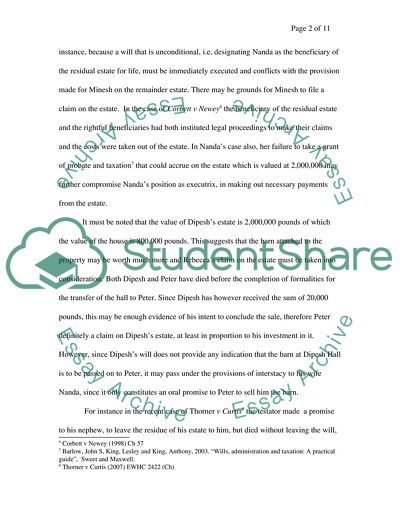Cite this document
(Property Law: Fuller v Strom Case Study Example | Topics and Well Written Essays - 2500 words, n.d.)
Property Law: Fuller v Strom Case Study Example | Topics and Well Written Essays - 2500 words. https://studentshare.org/law/1713484-law-of-administration-of-estate
Property Law: Fuller v Strom Case Study Example | Topics and Well Written Essays - 2500 words. https://studentshare.org/law/1713484-law-of-administration-of-estate
(Property Law: Fuller V Strom Case Study Example | Topics and Well Written Essays - 2500 Words)
Property Law: Fuller V Strom Case Study Example | Topics and Well Written Essays - 2500 Words. https://studentshare.org/law/1713484-law-of-administration-of-estate.
Property Law: Fuller V Strom Case Study Example | Topics and Well Written Essays - 2500 Words. https://studentshare.org/law/1713484-law-of-administration-of-estate.
“Property Law: Fuller V Strom Case Study Example | Topics and Well Written Essays - 2500 Words”. https://studentshare.org/law/1713484-law-of-administration-of-estate.


